 Have you ever wondered why some die young and some live for a long time? When a young person dies people have questions like.....why now ?...... why him?......... Isn't he too young to die? These questions have been bothering me for a while. So, I decided to explore some of these question from a Buddhist perspective.
Have you ever wondered why some die young and some live for a long time? When a young person dies people have questions like.....why now ?...... why him?......... Isn't he too young to die? These questions have been bothering me for a while. So, I decided to explore some of these question from a Buddhist perspective.Today I went to my vegetable garden in the backyard and I saw something that got me thinking.....Since I wanted to share it with you I took a picture of it (see the picture above). The previous day there was a bad storm and some of the tomatoes were on the ground. But when I examined them very closely I saw many old, rotting tomatoes on the ground. Among them was a baby tomato, perhaps only few days old (red circle), and one young tomato beginning to be ripe. On the tomato plant there were many baby, young and mature tomatoes. When I examined carefully to my surprise I found there were still very few old tomatoes hanging on to the plant (not shown in the picture).
This made me to contemplate about life. As a physician I see this all the time. Very young kids die as soon as they are born. Young children and teenagers die of illnesses and other causes like accidents. Some people go on to live long lives. To death, age is no barrier. Buddha said "life is like a dew drop on a blade of grass"seen in the morning. When the sun shines the dew drops disappears. Buddha repeatedly encouraged us to contemplate in the impermanence of life. This may sound depressive but in reality if you mindfully contemplate it helps you to understand the true nature of our existence. In fact it makes us stronger and makes it easier for us to cope when a disaster strikes our lives.
There is a classic story that came to my mind about death, that took place in Buddha's time. This is the story of Kisa Gothami. When her new born son died she did not know the baby was really dead. So she ran to Buddha asking him to cure her son as she had heard that Buddha was a very compassionate person with a lot of powers. Buddha at once knew that the baby was dead. But he wanted to teach Kisa Gothami a lesson about death. He asked Kisa Gothami to find a handful of mustard seeds from a household where there had been no death in the past. She went knocking on all the doors in the village but she could not find a single house without a death in the family. Soon she realized the lesson Buddha was trying to teach her that no family is spared the occurrence of death.
The question that will come to your mind at this time is why some people die young and others go on to have long lives? Who or what determines this? What is the Buddhist explanation to this? Buddha said this does not happen just by chance or by a will or an act of a omnipotent power like a "God". Buddha explained the Karmic factors linked to premature death and other differences we see in people. This is like a "cause and effect" law. These karmic factors may determine why some people are always sick and why some people are healthy, and why some people are born rich and some people are born poor etc. If you want to learn more about this please click the following links.
Culakammavibhanga Sutta
Vipaka Sutta
Also see related posts:
Life-is-just-like-morning-glory


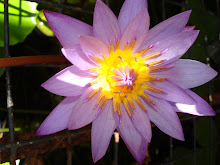













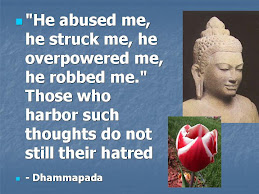

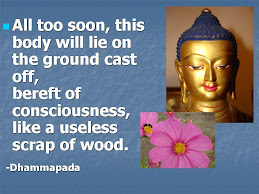
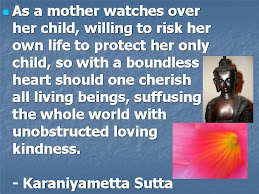
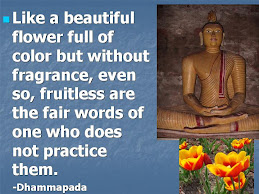
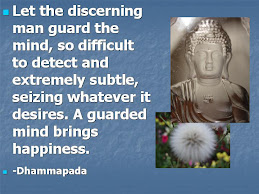

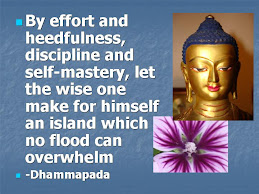

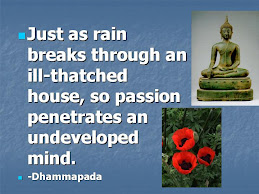

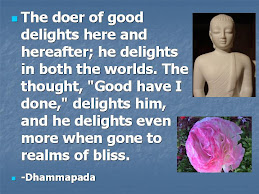
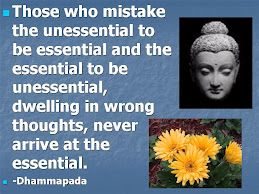
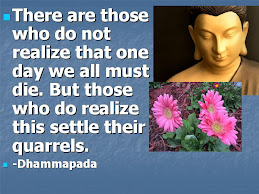
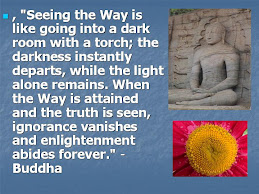

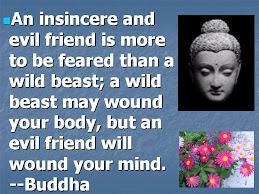
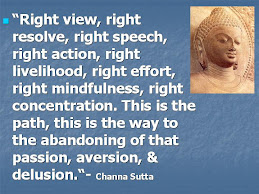

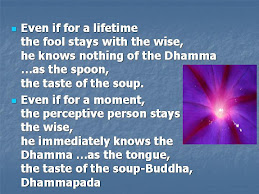


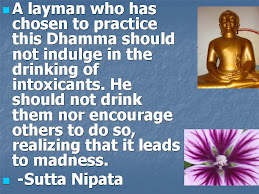
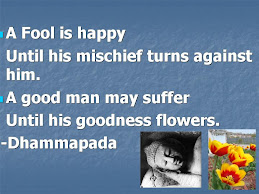
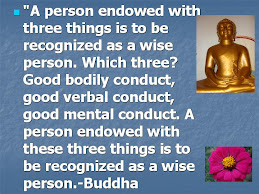

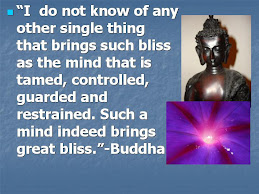
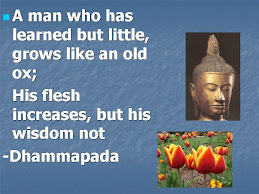
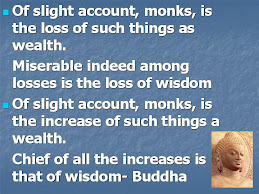

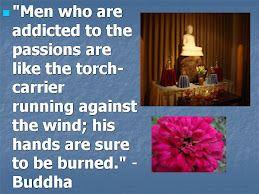


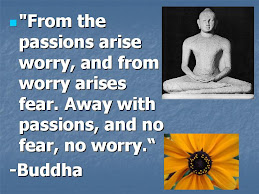
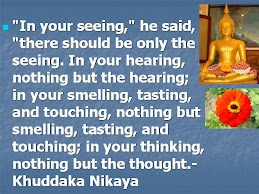




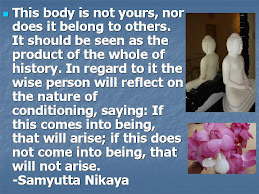
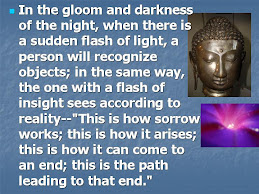
















No comments:
Post a Comment